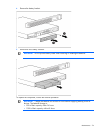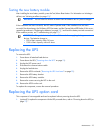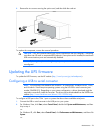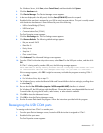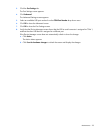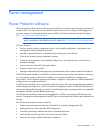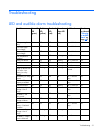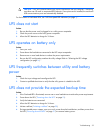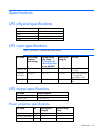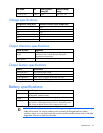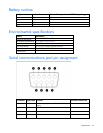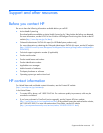
Troubleshooting 32
CAUTION: Only one communications port can be connected to the host computer. Connecting
more than one will result in unexpected UPS behavior. If an option card is installed, the serial and
USB communications ports are automatically disabled.
For the location of individual LEDs, see "UPS front panel LED indicators (on page 7)."
UPS does not start
Action:
1. Be sure that the power cord is plugged in to a utility power receptacle.
2. Check the power source at the utility power receptacle.
3. Allow the UPS batteries to charge for 24 hours.
UPS operates on battery only
Action:
1. Save your work.
2. Power down the load devices connected to the UPS output receptacles.
3. Remove one or more load devices to reduce the power requirements.
4. Be sure the UPS configuration matches the utility voltage. Refer to "Selecting the UPS voltage
configuration (on page 14)."
UPS frequently switches between utility and battery
power
Action:
1. Check the input voltage and reconfigure the UPS.
2. Contact a qualified electrician to verify that the utility power is suitable for the UPS.
UPS does not provide the expected backup time
Action:
1. If the Overload LED is illuminated, remove one or more load devices to reduce the power requirements.
2. Power down the UPS ("Powering down the UPS" on page 21).
3. Verify the batteries are connected.
4. Allow the UPS batteries to charge for 24 hours.
5. Initiate a self-test ("Initiating a self-test" on page 20).
6. During extended power outages, save your work, power down the load devices, and then power down
the UPS ("Powering down the UPS" on page 21) to conserve battery power.



